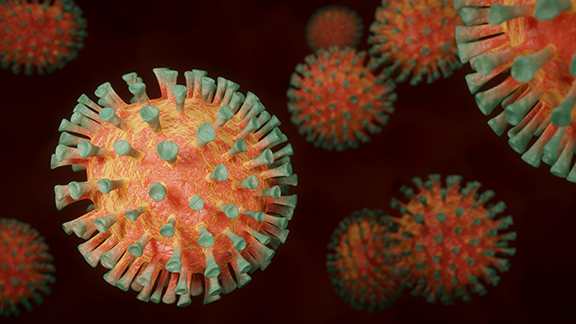Our Role as COVID-19 Increases Health Literacy Problems

by Amy Shockley
Health literacy has become a buzzword phrase among everyone from physicians to teachers because our collective health illiteracy has become so appalling. Professionals say this problem has been exacerbated by the COVID-19 pandemic, as panic and half-truths proliferate throughout the country. As it turns out, some among us don’t understand the poor health decisions they make and experts say it has become a national public health problem. That’s because there’s a clear link between poor health literacy and poor health.
For many, it is hard to imagine being in the dark about one’s health condition or not understanding the basics of nutrition or exercise. But the examples proliferate. Maybe someone doesn’t have the ability, curiosity, or interest to seek the knowledge to make good health decisions. Maybe they are intimidated in front of doctors and nurses, and hesitate to ask questions. Perhaps they don’t understand food labels or prescription instructions. Some likely feel items like sunscreen are an inconvenience. Others could be modest, and unlikely to tell a doctor about pain or discomfort. And everybody can probably agree that navigating a healthcare system or health insurance can sometimes be difficult and maddening.
But shining a light on health literacy and facilitating a greater understanding of health-related actions and decisions could be the difference between life and death. That’s why the U.S. Department of Health and Human Services created a “National Action Plan to Improve Health Literacy,” with a goal of equipping society to better handle its healthcare issues. It aims to accomplish this feat by ensuring access to good health information, providing “person-centered” explanations, and supporting lifelong learning about personal health.
The issue of health literacy is blind to race, nationality, gender, or educational levels, but according to the action plan, it “disproportionately affects lower socioeconomic and minority groups” (p. 1). Some facts and examples of health illiteracy are especially startling. The action plan cites U.S. Department of Education data showing that only 12 percent of the country’s English-speaking adults have “proficient health literacy skills” (p. 4). In fact, last year the Centers for Disease Control had to reaffirm warnings against rinsing food in bleach to guard against COVID-19 (Glicksman, 2020). In another example, a library asked its patrons to stop heating books in microwave ovens to kill coronavirus germs after too many burned, blackened pages, according to a report from a Chicago television station (Nexstar Media Wire, 2020).
What are some ways adult educators can develop health literacy in the people we serve? The action plan suggests these strategies:
- Support community-based programs that empower people to be more involved and active in health and teaching skills, such as computer use, to assist people in acquiring credible health information.
- Infuse health literacy skills into curricula for adult literacy, ESOL, and family literacy programs.
- Facilitate collaborations among the adult literacy and ESOL communities; health care partners; and community-, faith-, and academic-based organizations.
- Include high school, college, and professional school students in health literacy programs to bridge cultural and generational divides.
- Collaborate with medical librarians to create health information centers in public libraries.
- Train more librarians and reference staff in health literacy skills and health information technologies so they can help to build the health literacy skills of patrons.
- Create opportunities for health education and learning in communities through creative uses of technology and multimedia.
- Provide professional development in health education topics and skills for those teaching adult literacy, ESOL, and family literacy programs.
In addition to these strategies, it is important to contextualize health literacy subject matter when opportunities present themselves. The COVID-19 pandemic offers unique ways for contextualization to take place. Region 22’s adult education program consists of Accomack and Northampton counties on the Eastern Shore of Virginia and is a rural area with Internet challenges. Being located on the campus of Eastern Shore Community College has been an asset during the COVID-19 pandemic because in-person classes have been permitted to meet. All students coming on campus have to sign in and complete a daily health assessment. This process has made health literacy very relevant for students and instructors, since health is addressed daily. The daily health assessment has prompted conversations with learners about when to get tested for COVID-19 and when to see a doctor. Instructors have used news articles about COVID-19, the vaccines, and other related stories in both in-person and online classes. Using news stories is a way to engage learners in relevant information that can benefit them and their families.
“Improving health literacy—that is, the degree to which individuals have the capacity to obtain, process, and understand basic health information and services needed to make appropriate health decisions—is key to the success of our national health agenda” (U.S. Department of Health and Human Services, 2010, p. iii). Adult education programs are instrumental in meeting this objective.
References:
Centers for Disease Control and Prevention. (2021, March 12). What is Health Literacy? www.cdc.gov/healthliteracy/learn/index.html
Glicksman, E. (2020, August 2). Health illiteracy is nothing new in America. But the pandemic magnifies how troubling it is. https://www.washingtonpost.com/health/health-illiteracy-is-nothing-new-in-america-but-the-pandemic-magnifies-how-troubling-it-is/2020/07/31/091c8a18-d053-11ea-9038-af089b63ac21_story.html
Nexstar Media Wire (2020, June 26). Michigan library: Please stop microwaving our books to kill COVID-19. WGN-9 TV. https://wgntv.com/news/coronavirus/michigan-library-please-stop-microwaving-our-books-to-kill-covid-19/
U.S. Department of Health and Human Services, Office of Disease Prevention and Health Promotion (2010). National Action Plan to Improve Health Literacy. https://health.gov/sites/default/files/2019-09/Health_Literacy_Action_Plan.pdf
 Amy Shockley is the Regional Adult Education Program Manager at Eastern Shore Community College in Melfa, Virginia. She is current president of the Virginia Association for Adult and Continuing Education (VAACE). She holds a bachelor’s degree from Salisbury University and a master’s degree from Old Dominion University, and is proud to be a lifelong resident of Virginia’s Eastern Shore.
Amy Shockley is the Regional Adult Education Program Manager at Eastern Shore Community College in Melfa, Virginia. She is current president of the Virginia Association for Adult and Continuing Education (VAACE). She holds a bachelor’s degree from Salisbury University and a master’s degree from Old Dominion University, and is proud to be a lifelong resident of Virginia’s Eastern Shore.